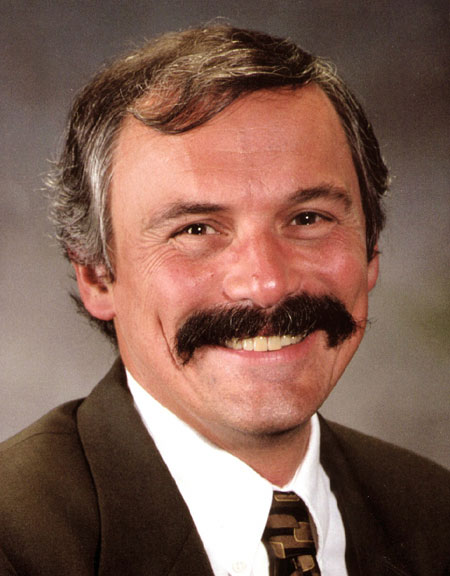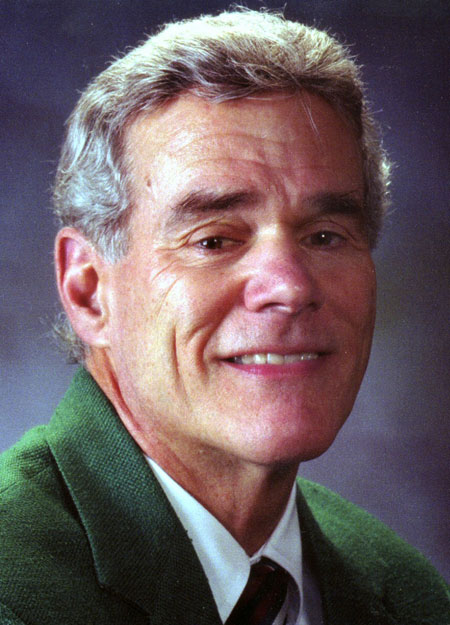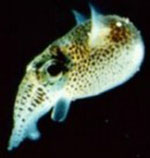VIRGINIA TECH'S ASHLEY WHITE NAMED TO USA TODAY ALL-USA FIRST TEAM Virginia Tech senior Ashley White, a University Honors student pursuing degrees in both materials science and engineering and music performance, has been named to USA Today's All-USA College Academic First Team. White is one of 20 undergraduates selected from a field of more than 600 students nominated by colleges and universities throughout the United States. The All-USA first team students met the criteria for outstanding scholarship and leadership and for extending their intellectual talents beyond the classroom.
Since 2000, White has performed as student concert master with the New River Valley Symphony, and in 2001, she became first violinist for the Virginia Tech Spring String Quartet. She also teaches private violin lessons at the Performing Arts Institute of Virginia and coaches violin students for youth orchestras. During the summer of 2003, she used her University Honors Scholarship to fund an 11-week tour of Paraguay and Mexico, where she worked with youth orchestra programs. "I want to continue to study music and to work with youth orchestras," said White, who considers the 2003 tour to be one of her most significant accomplishments as an undergraduate. "Ashley is a multi-faceted student with a personality that just won't quit," said John Husser, chair of the Department of Music in the College of Liberal Arts and Human Sciences. "There is no such thing as 'no' to Ashley. She came here with a plan to earn two degrees in four years. In addition, she has accomplished incredible outreach by sharing her love of music with children in Mexico and South America." White spent the 2004 spring semester in Italy, studying engineering and music at the University of Rome, and during the summer worked as an engineering intern at the Massachusetts Institute of Technology. She also has interned at NASA Langley, the Thomas Jefferson National Accelerator Facility, Cornell University and Lawrence Berkeley National Laboratory. Already a published researcher, White is co-author of a scientific paper on aerogel materials published in the Dec. 2003 issue of the Journal of Non-Crystalline Solids and of an experiment published in the 2000 Virginia Junior Academy of Science Proceedings. She is a member of the ceramics research group led by David Clark, head of the College of Engineering's Department of Materials Science and Engineering. "When Ashley arrived at Virginia Tech she had a keen interest in aerogels, and she has pursued this interest fervently while working in my research group," said Clark. "There is no doubt that her research will be highly valuable in designing advanced materials for a diverse range of future applications, including the biomedical field." As a graduate student at Cambridge, White will work in the area of materials engineering and she plans to conduct research in bio-materials. At this time, her professional goal is to work in academia, although she also is interested in the field of public policy. "Ashley is a person of integrity and energy, of talent and confidence, and of curiosity and adventure," said Dudley. In addition to the Marshall and University Honors scholarships, White has received a Barry Goldwater Scholarship, a highly competitive national research award for undergraduates; and the Lewis Hoffman Award, presented by the American Ceramic Society to only one undergraduate annually. In 2002, she was inducted into Phi Beta Kappa. White has received numerous other scholarships while at Virginia Tech, including the Hokie Scholar Award, which pays full tuition for four years; Pulley-Louden Scholarship; Gilbert and Lucille Seay Scholarship; Pamplin Leader Award; Music Department Scholarship; and the Alfred E. Knobler Scholarship. White, who will graduate in May 2005, is the fourth Virginia Tech student named to USA Today's All-USA First Team. Past honorees are Susan Cox, a 1992 aerospace engineering graduate; John Michael Schmidt, a 1998 biology and environmental sciences graduate; and Sarah Airey, a 2001 electrical and computer engineering graduate. VIRGINIA TECH DINING KEEPS CUSTOMER SERVICE FRESH (WITH RELISH!)
Virginia Tech is consistently ranked among the top universities in providing its students with the very best in dining options. One important way they make that happen is keeping in touch with student preferences and needs. Virginia Tech's Office of Housing and Dining Services has created a variety of customer service programs, including satisfaction surveys, which allow students to rate their preferences online; a customer advocate, who personally assists students with their needs; a Mystery Shopper program, which places students in the dining centers to observe and record customer satisfaction; a Student Advisory Committee, comprised of students who provide feedback and ideas; quality control surveys; website information and links; and Table Talk Live sessions. Every semester, students voice their ideas and suggestions at more than a dozen Table Talk Live sessions. "These sessions provide a great opportunity for our dining staff to answer questions about our facilities, food, and service, but most importantly, to find out what students like," said Rick Johnson, director of housing and dining services. "It is a great pleasure for us to facilitate this kind of face-to-face communication with our customers." The following improvements and additions are new as a direct result of fall 2004 Table Talk Live comments and suggestions:
For a schedule of the spring 2005 Table Talk Live sessions, go to http://www.studentprograms.vt.edu/dining/table_talk_live.php. GOVERNOR NAMES THREE FROM VIRGINIA TECH AMONG THE 2005 VIRGINIA OUTSTANDING FACULTY MEMBERS In February, Gov. Mark R. Warner recognized today 12 outstanding faculty members from Virginia's colleges and universities for their excellence in teaching, research and public service. Among the 12 were three Virginia Tech professors--Rick O. Claus, Lewis Hester Chair of Engineering in the College of Engineering; E. Scott Geller, professor of psychology in the College of Science; and Lucinda Roy, Alumni Distinguished Professor of English in the College of Liberal Arts and Human Sciences. "Everyone benefits from the dedication and knowledge of these outstanding individuals--students, institutions of higher learning, and the Commonwealth of Virginia," said Gov. Warner at a presentation ceremony in the Old Senate Chamber of the Virginia State Capitol. The Outstanding Faculty Awards Program (OFA) is administered by the State Council of Higher Education (SCHEV) and funded by Dominion, the long-term corporate underwriter. An OFA award is the Commonwealth's highest honor for faculty at Virginia's public colleges and universities. Now in its 19th year, the OFA program awards faculty members selected from a pool of candidates nominated by their peers. "This award recognizes the finest among Virginia's faculty at our institutions of higher education for their superior accomplishments in teaching, research, and public service," said SCHEV Executive Director Daniel J. LaVista. "The OFA program has a well deserved reputation for fostering faculty excellence. Dominion is proud to underwrite it and we look forward to continuing the partnership for many years," said Thos. E. Capps, chairman and chief executive officer. Dominion has committed $75,000 per year for a three-year minimum to support the program. In the past year, the Dominion Foundation, the philanthropic arm of Dominion, has approved more than $1 million in grants to higher education in Virginia. "Dominion is one of the Commonwealth's most valued corporate citizens and a long-time friend of higher education," said Warner. The majority of the Dominion Foundation's $75,000 annual gift was distributed today as $5,000 honoraria to each of 12 OFA recipients. The remainder of the gift was used by SCHEV to host the awards presentation and a luncheon for award recipients and their family members.
Other 2005 Outstanding Faculty Awards Winners include Gayle F. Childers, professor of mathematics at J. Sargeant Reynolds Community College; R. Ed Freeman, Elis and Signe Olsson Professor of Business Administration at the University of Virginia; Matt R. Hyre, assistant professor of mechanical engineering at Virginia Military Institute; Cynthia M. Jones, Professor and Eminent Scholar of Biology at Old Dominion University; T. Mills Kelly, assistant professor of history at George Mason University; Katharine C. "Kitty" Kersey, University Professor of Early Childhood Education at Old Dominion University; Roland B. Minton, professor of mathematics at Roanoke College; Kate F. Slevin, Chancellor Professor of Sociology at the College of William and Mary; and Judy L. Twigg, associate professor of political science at Virginia Commonwealth University. The General Assembly and the Governor created the OFA Program in 1986. Since being implemented in 1987, a total of 205 Virginia faculty members have received this honor. Dominion is one of the nation's largest energy companies. The Dominion Foundation contributes more than $6 million a year to education, health and human services, community development, and environmental and cultural programs in areas where the company does business. Producers of energy, with an energy portfolio of about 28,340 megawatts of generation, Dominion also serves retail energy customers in eight states. PROFESSORS ARE PART OF NEW INTERNATIONAL SCIENTIFIC MAGAZINE
Hochella, a Virginia Tech alumnus, went on to earn a Ph.D. from Stanford University, where he was a research professor for nine years. He rejoined Virginia Tech in 1992. Hochella leads a project that was recently awarded $1 million from the National Science Foundation's newest initiative, Nanoscale Science and Engineering. His awards include the Humboldt Research Award and Fellowship and the Dana Medal. A native of Blacksburg, Ross joined the Virginia Tech Department of Geological Sciences in 2000 as professor of mineralogy after 12 years at University College London. She was named associate dean for research, graduate studies, and outreach for the College of Science in 2004. She obtained her bachelor's degree from Virginia Tech, a master's degree from the University of British Columbia, and a Ph.D. from Arizona State University. Ross is a fellow of the Mineralogical Society of America. Elements was unveiled at the recent Geological Society of America meeting in Denver, Col., according to Tremblay. Bodnar "has assembled a collection of five invited peer-reviewed papers covering ore-forming fluids; volatiles in magmatic-volcanic systems; water in the mantle; fluids, faulting, and flow; and extraterrestrial water," Tremblay said. Bodnar also wrote the introduction. Seven organizations serve as co-publishers of Elements: the European Association for Geochemistry, the International Association of Geochemistry and Cosmochemistry, the Mineralogical Society of America, the Mineralogical Society of Great Britain and Ireland, the Mineralogical Association of Canada, the Geochemical Society, and the Clay Minerals Society. Members of the societies, plus 1,300 libraries around the globe, will receive the magazine. Subscriptions currently number approximately 9,000. SEQUENCING OF MARINE BACKTERIUM WILL HELP STUDY OF CELL COMMUNICATION The opportunity to anno Researchers studying the newly sequenced genome of the marine bacterium V. fischeri, described this week in the Proceedings of the National Academy of Science (PNAS), have so far observed both differences and similarities in gene arrangement between it and pathogenic Vibrio species. V. fischeri has a lower GC content than other sequenced Vibrio species, but it is still more closely related to them than other organisms. (Among the four nucleotides that make up DNA--adenine, guanine, thymine, and cytosine (ATGC)--'A' pairs with 'T' and 'G' pairs with 'C'. The more GC content, the more tightly DNA strands bind.) Despite the fact that it is a symbiont, V. fischer's genome contains genes that may have toxin activity. "Analysis of this sequence has revealed surprising parallels with Vibrio choleraeand other pathogens," said Ann Stevens, associate professor of biology in Virginia Tech's College of Science. This sequence research is described in the PNAS online early edition the week of Feb. 7, 2005 (http://www.pnas.org/), in the article, "Complete genome sequence of Vibrio fischeri: A symbiotic bacterium with pathogenic congeners," by E. G. Ruby, professor of medical microbiology and immunology at the University of Wisconsin, Madison, previously at the University of Hawaii; C. Lupp; J. McCann; D. Millikan; A. Schaefer; and C. Whistler of the University of Hawaii at Honolulu; M. Urbanowski and E. P. Greenberg of the University of Iowa at Iowa City; J. Campbell at Integrated Genomics; A. Dunn and E. Stabb at the University of Georgia at Athens; Marie Faini and Ann Stevens of Virginia Tech; R. Gunsalus of the University of California at Los Angeles; and K. Visick of Loyola University Chicago. Stevens studies how cell-to-cell interaction regulates bacterial processes that include antibiotic or toxin production, biofilm formation, and bioluminescence. One of the longest studied models of quorum sensing is the bioluminescent marine bacterium V. fischeri. "It was selected by Drs. Ruby and Greenberg to be sequenced exactly because it is so well studied," Stevens said. "This was also the first time a non-pathogenic Vibrio species has been sequenced and there is the potential for valuable lessons as it is compared with the pathogenic species. I was particularly pleased when my graduate student, Marie Faini, and I were given the opportunity to be members of the team that annotated the sequence." Annotation is a complex process that assigns functions to genes. Having access to the genetic sequence in order to perform this chore gave Stevens and Faini early access to specific information about the genes of the bacterium she has been studying for several years. Many different bacteria use quorum sensing. Stevens explains that cells release autoinducer molecules. The numbers of these signal molecules increase with cell density, until they initiate various reactions, such as light production--or, in a pathogen, the release of toxin once a certain level of bacteria build up. Stevens studies the regulation system of the cell-to-cell communication. "Our quorum sensing research group at Virginia Tech is working to build a more complete understanding of the molecular processes that occur at the point that a bacterium changes its gene expression pattern in response to quorum sensing," she said. The genome sequence has allowed Stevens to begin exploring the connection between quorum sensing and other global regulatory networks through a combination of comparative genomics and experimental molecular biology. Other researchers are focusing on the relationship between the bacterium and its animal host. The PNAS article concludes, "If we are to understand the unifying themes underlying these contrasting bacteria–host interactions, we must begin to use comparative genomic approaches with closely related pathogenic and beneficial microbial species." Marie Faini O'Brien of Frederick, Md., earned her master's degree in biology in April 2003. For questions about quorum sensing, contact Ann Stevens at (540) 231-9378 or ams@vt.edu. Learn more at http://www.biol.vt.edu/faculty/stevens/. The lead author of the PNAS article, E.G. Ruby, is at (608) 262-5911, egruby@wisc.edu. Learn more at http://www.medmicro.wisc.edu/department/faculty/ruby.html. Direct questions specific to PNAS content to the PNAS News Office at (202) 334-1310 or PNASnews@nas.edu. |
|||||||||||||||






 tate the genome of the glow-in-the-dark bacterium, Vibrio fischeri, which lives in symbiotic harmony within the light organ of the bobtail squid, has helped a Virginia Tech microbiologist advance her research on quorum sensing, or how cells communicate and function as a community.
tate the genome of the glow-in-the-dark bacterium, Vibrio fischeri, which lives in symbiotic harmony within the light organ of the bobtail squid, has helped a Virginia Tech microbiologist advance her research on quorum sensing, or how cells communicate and function as a community.